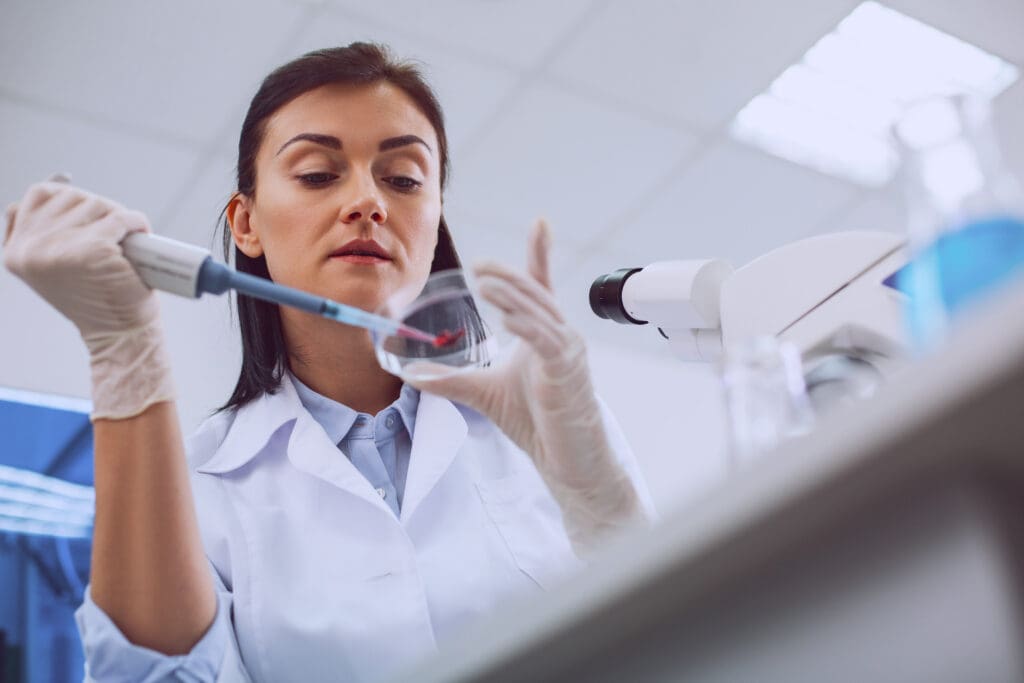
Oncological Medicine
WHAT IS TRUCHECK?™?
Trucheck™ is a state-of-the-art, research-backed screening test that can detect the presence of circulating cancer cells in the blood. The test method has been validated in an international clinical trial involving more than 57,000 people. It is a non-invasive procedure, so it can be performed with a simple blood sample, targeted at asymptomatic individuals who have never had cancer.
The test can only be performed in conjunction with a specialist consultation - detailed evaluation and advice are included in the price.
WHO IS THE TEST RECOMMENDED FOR?
- asymptomatic individuals with a family history of cancer
- Under 35 years of age and over 70 years of age, because the test has not yet been validated in these age groups
- for those seeking regular, comprehensive cancer screening
- who belong to a high-risk group but are currently symptom-free
- For people between the ages of 40 and 70 who have never been diagnosed with cancer
- those who want to be sure that no malignant changes have developed in their body
WHO IS NOT RECOMMENDED FOR THE TEST?
The test cannot be performed in the following cases:
- who currently have cancer or have already had such a disease
- if the patient has clinical or imaging findings that suggest a tumor
- in case of hematological diseases (e.g. leukemia, lymphoma, multiple myeloma, polycythemia, etc.)
- if you have recently (within 10 days) had a blood transfusion, organ or bone marrow transplant
- during pregnancy
- in case of immune disorders (e.g. HIV, immunosuppressive, immunostimulant treatment)
HOW IS THE TRUCHECK™ TEST PERFORMED?
The Trucheck™ test is based on the identification of so-called circulating tumor cells (CTCs) in the blood. These cells originate exclusively from malignant tumors, so benign lesions do not emit them. The Trucheck™ Intelli test can detect up to 70 different types of solid tumors – these account for the vast majority of cancers in Europe.
The method uses special markers found on the surface of cells, which have been developed to recognize multiple tumor subtypes – including those that are not always detectable with standard CTC-based techniques.

HOW RELIABLE IS THE TRUCHECK™ TEST?
- Sensitivity: 65–89% for solid tumors in stages 0–4
- Specificity: 96–99% when screening asymptomatic individuals
Indicating the sensitivity ranges of a test helps to more accurately model how the test performs in different populations and clinical situations. The statistical flexibility behind the numbers provides a more realistic picture of clinical utility.
ADVANTAGES:
- The presence of multiple tumors can be detected from a single blood sample
- It can help determine which organ the tumor originated from
- Used in conjunction with imaging techniques, it increases the chance of recognition
- Does not require invasive intervention, painless
DISADVANTAGES:
- The test is not considered diagnostic – a positive result does not automatically mean cancer.
- A negative result does not completely rule out the presence of the disease.
- In many cases, an identified tumor is not yet visible on imaging studies
- Therapy is not possible based on the test results alone.
In the event of a positive result, a detailed specialist consultation will take place, during which the doctor will interpret the details and recommend further tests if necessary. In the event of a positive result, psychological support is also available.
